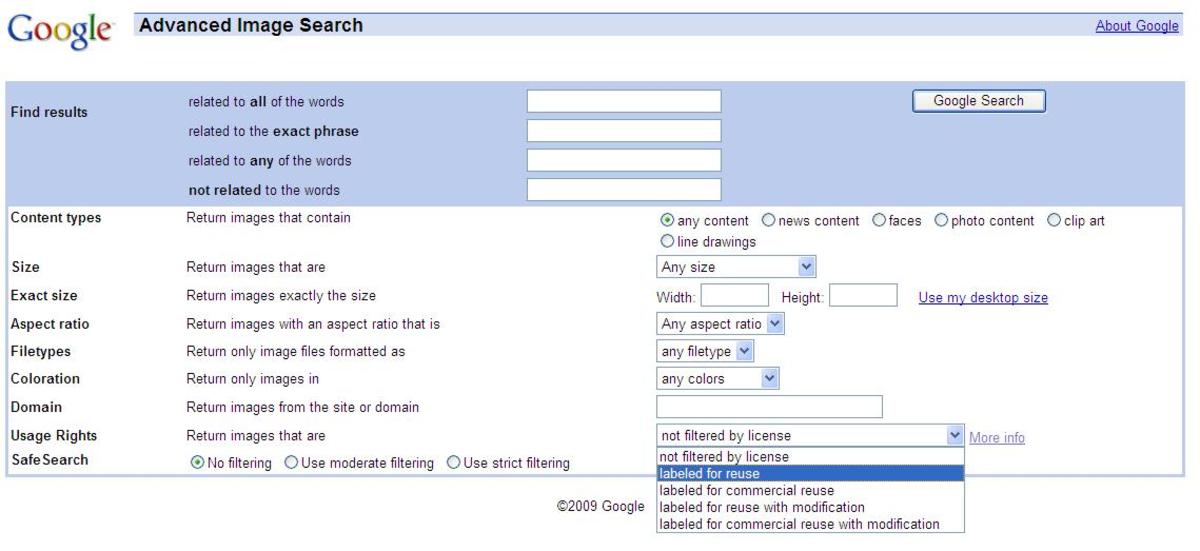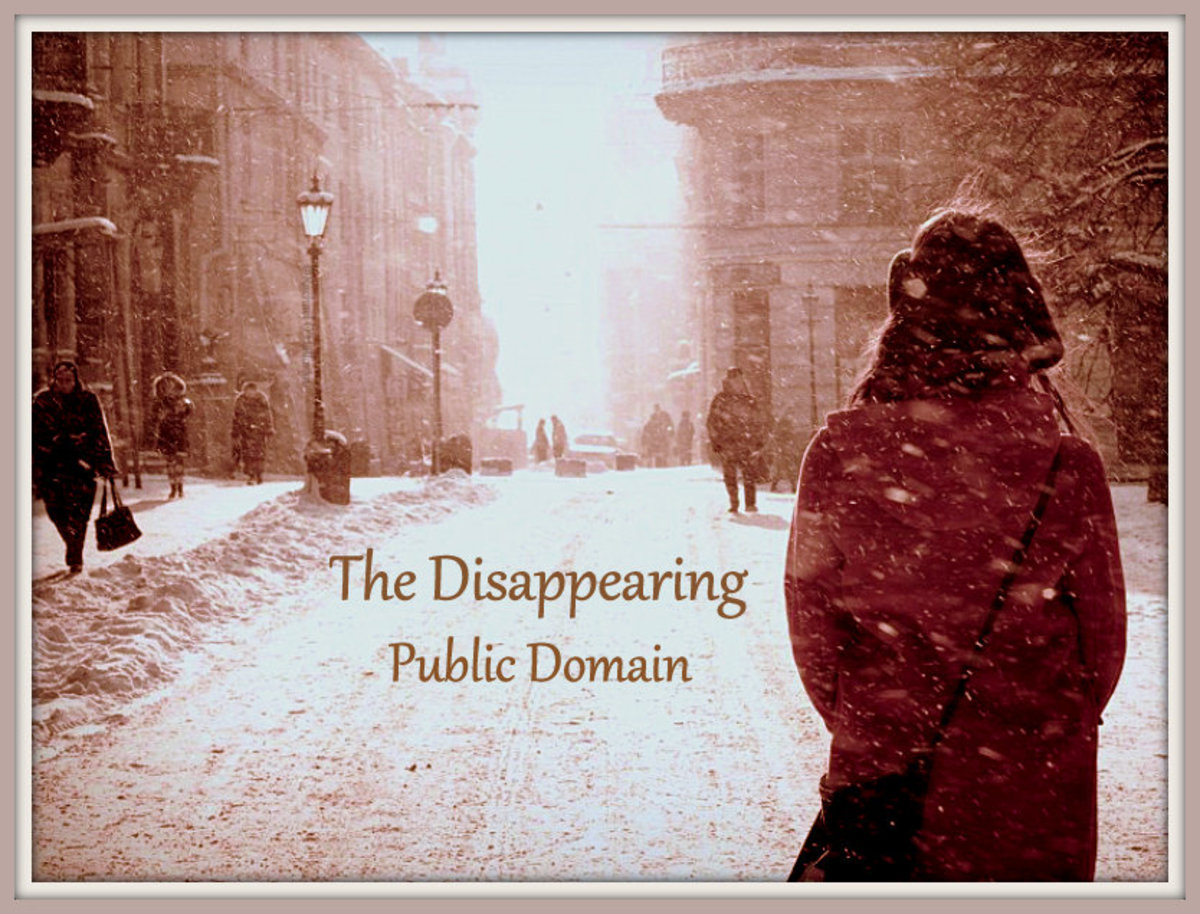Creative Commons Licenses

What are Creative Commons Licenses?
Creative Commons licenses are created to fill the gap between a copyrighted work, in which you reserve all your rights, and releasing your work into the public domain, in which you relinguish all your rights. Creative Commons licenses have been described as some rights reserved, in which you retain some measure of control over how your work will be used while giving permission for other types of uses.
The 4 License Conditions
There are 4 license conditions. These license conditions are used in various combinations in the actual licenses.

Attribution
You allow others to copy, distribute, display and perform your copyrighted work, so long as they give you credit in the way that you request. They are also allowed to create derivative works based on your copyrighted work under the same condition.

Share Alike
You allow others to distribute derivative works so long as they give others the same rights as you give to them.

Noncommercial
You allow others to copy, distribute, display and perform your copyrighted work, so long as it is for noncommercial purposes. They are also allowed to create derivative works based on your copyrighted work under the same condition.

No Derivative Works
You allow others to copy, distribute, display and perform your copyrighted work. But no derivative works are allowed.
The 6 Types of Licenses
There are 6 types of licenses in total, each possessing some of the license conditions mentioned above. They are arranged in the order of the most accomodating to the most stringent, with the last license having been described as "free advertising" for the holder.

Attribution License
This license allows others to distribute, remix, tweak, and build upon your work, so long as they credit you for the original creation. They may profit from it.
View License Deed | View Legal Code

Attribution Share Alike License
This license allows others to remix, tweak, and build upon your work, so long as they credit you and license their new creations under identical terms. They are allowed to profit from it.
View License Deed | View Legal Code

Attribution No Derivatives
This license allows others to distribute your work, so long as it remains unchanged and they credit you for it. They are allowed to profit from it.
View License Deed | View Legal Code

Attribution Non-Commercial
This license allows others to remix, tweak, and build upon your work non-commercially, so long as they credit you. They do not have to license their new works under the same terms.
View License Deed | View Legal Code

Attribution Non-Commercial Share Alike
This license allows others to remix, tweak, and build upon your work non-commercially, so long as they credit you. They also have to license their new works under the same terms.
View License Deed | View Legal Code

Attribution Non-Commercial No Derivatives
This license allows others to distribute your work non-commercially, so long as they credit you. This license is the most restrictive among the 6 licenses.
View License Deed | View Legal Code
Common Questions
What is defined as commercial use?
Other than the obvious, in which you sell the work in question, commercial use can be a gray area. For example, if you put a photo on a website, and the website runs Adsense ads or sells products, it can be argued that that is commercial use of the photo. But if you put a photo on a website that is not commercial in any way, but that website links to another website that you also own that is commercial, it gets a bit more tricky.
If there is any doubt at all, why not just consider looking for content that permits commercial use. That way, there will be no issues. :)
At the moment, Creative Commons is conducting a study into what constitutes "non commercial use". It is scheduled to be completed by early 2009.
Do I need to register with Creative Commons to use their licenses?
No you do not. Creative Commons does not keep track of works using its licenses.
How can I use these licenses?
There is a great guide on their site on how you can actually license your content using theor licenses. The guide is a pdf file.
I released my work under a Creative Commons license and I found somebody violating the license. How can Creative Commons help?
Creative Commons does not provide legal help in the enforcement of its licenses. They are more like a legal self-help site that offers you free form-cased legal documents for your use. They are not a law firm.
When To Consider Legal Help
If you are running your own website that is earning a few hundred dollars a month, you should be able to do very well without the blood-su.......ahem........lawyers. But if you have an Internet business with millions in turnover per month, then a lawyer should be a worthwhile investment.
(My apologies to all the lawyers out there but I just can't resist. :) I realize that that's a stereotype and that not all lawyers are bad)
Disclaimer
I am not a legal professional nor do I have any legal training. This article constitutes a guide to the Creative Commons licenses. This article cannot be taken as legal advice.
Resources
Parts of this hub have been adapted from Creative Commons








